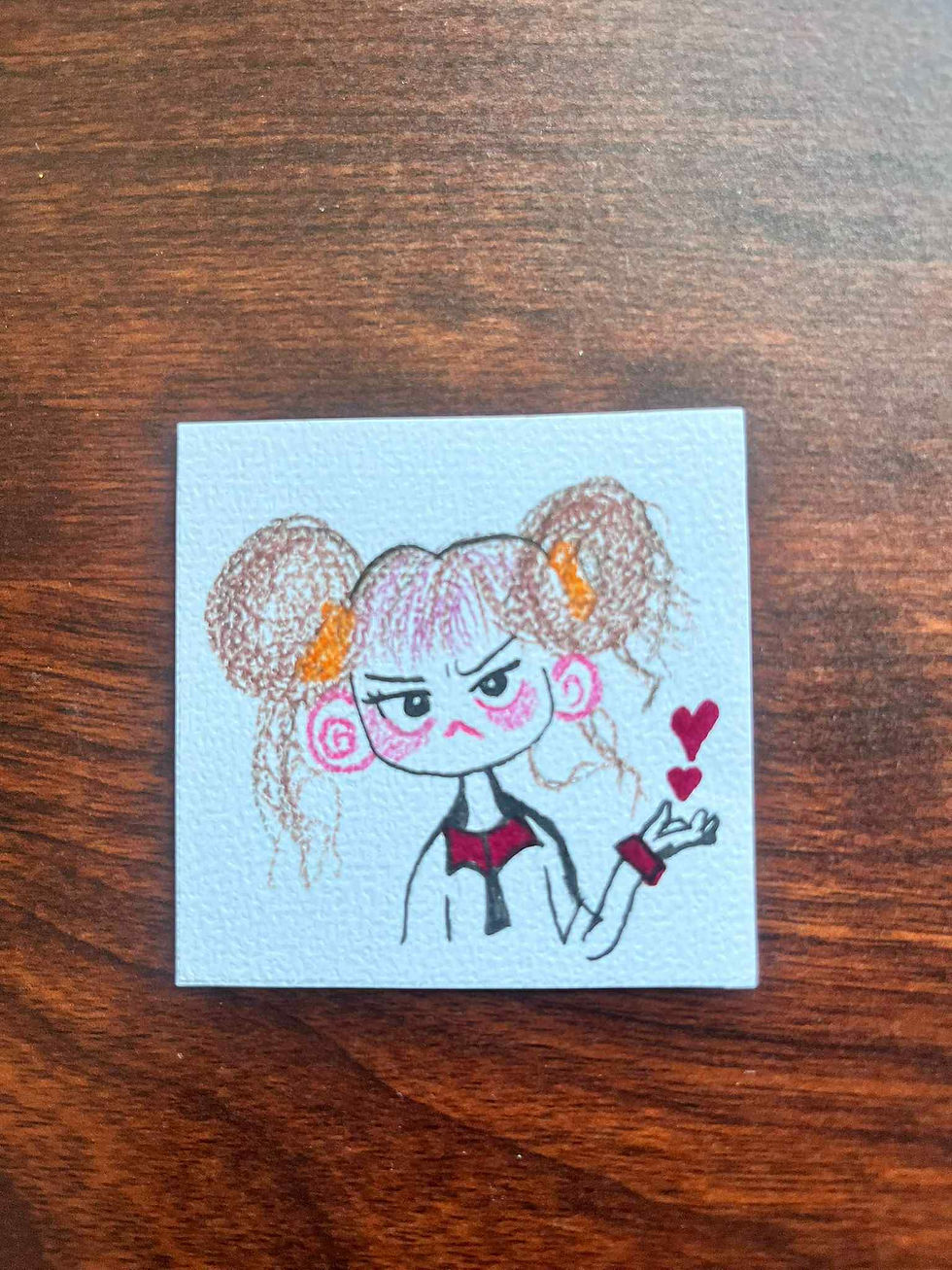Wrong color-code!
- akhanom201
- Jun 23, 2024
- 4 min read
Updated: Jun 14, 2025

We all get asked, “what is your favourite color?” every now and then, right? Recently, when I’ve been asked, I told it’s white and green. Then, I started thinking—what was my favourite color when I was a child? I realized I don’t remember. As a teenager, I do remember—it was black!
Everything I wore was black. Even during cultural festivals like Pahela Baishakh (the Bengali New Year), when the theme is to wear red and white, I wore black. Acquaintances would give me stern looks and sigh, “Did you really have to wear black today?”
But as a kid, I liked all the colors. I wanted things in different colors. However, reality changed the moment I realized I couldn’t wear just any color because I didn’t have fair skin.
I don’t remember exactly how old I was, but maybe I was in class 2 or 3. It was during Eid when we went out shopping—my sister, my mom, my aunt, and me. I’ve always been very choosy, so my shopping was kept for last. Finally, it was my turn. We entered a shop, and I found a dress that was yellow or green. I pointed at it and told my mom I liked that dress. My mom asked the shopkeeper if they had it in any other color. He nodded yes and brought out a couple of different colors. “But I want that color,” I persisted. “No, no—look at this color. It’s better than the one you chose,” my mom assured me. The shopkeeper jumped into our conversation, pleading with my mom, “Since she likes that color, why don’t we just go with it?” And then my aunt spoke. She said something that I carried with me my whole life, something that, looking back, I now recognize as trauma. She said, “Look at her skin color. The color she chose will make her look darker. Yellow and green are not for people with dark skin.”
As a kid, the statement shook me. I felt belittled and exposed in front of the shopkeeper and everyone else in the shop. Everyone glanced at me. I could hear echoes: “Look at her skin color! Look at her skin color!” I looked down and took a long glance at my hand. “So, this is the wrong color,” I told myself. “I was born with the wrong color”.
As I grew up, things got even messier. I’m a sporty person, but every time I played outside, I was reminded, “Don’t play in the sun. You’re getting darker.” I stopped visiting certain relatives because they would immediately comment on my darkening skin. My mother would give me a look mixed with anger and depression and sigh.
I had friends who were boys, and I realized they didn’t have to think about their skin color. Their parents never told them to stop playing outside because they were getting darker. For me, it was the opposite. Neighbours would complain, “Why does your daughter always play with boys? Why doesn’t she have any girlfriends?” All these complaints were torture for me. I don’t think there is any utensil I haven’t been beaten with. Sometimes, I wondered why my mom was beating me. I hadn’t hurt anyone. I excelled in my studies, and my teachers praised me. Perhaps that wasn’t enough. I was supposed to act like a girl, and I wasn’t born with fair skin. So, I had to face the consequences.
I was so tired of being born a girl. I could sense all the societal pressure that a girl has to carry from class two. One day, I asked my mother, “I want to be a boy. I want to be free.” She told me I could become a boy if I could touch my elbow with my tongue. I kept practicing for days, but all my tries went in vain. Eventually, one of my cousins said, “You’ve been tricked. You can’t just become a boy by touching your elbow with your tongue.” That was another trauma of being betrayed.
As I grew older, the weight of those early experiences lingered, influencing my choices and self-perception in ways I didn’t fully understand until much later. However, in time, I found strength in embracing my individuality and the very traits that once seemed to be my limitations. I am glad that I have been able to address the trauma that I carried for so many years. I have grown the sense of self-acceptance and peace within myself of who I am. The journey hasn’t been easy though.
Now, when I am asked about my favourite color, I smile and think of the many hues that have painted my life’s experiences. I am able to declare that my favourite colours are white and green. It’s not just a simple preference. It’s a statement of liberation.
I hope things are different now. I hope the kids growing up in Bangladesh do not experience the traumas related to skin color. I hope they grow up appreciating all the colors and valuing and owning their identity. I hope they do not feel compelled to confine their teenage lives to wearing only black out of societal pressure. If they choose black as their favorite color, it should be their own decision, not influenced by the opinions of others. I hope they have the freedom to express themselves in any color they desire, without fear of judgment or prejudice.



“Sometimes, I wondered why my mom was beating me” This part kind of stung me. Maybe felt hurt. I am glad that, you have grown to a strong and self-reliant person. As a male from Bangladeshi society, I always get advantages which I feel ashamed nowadays. from that viewpoint, take my apologies. Someday we can chitchat and share our stories. I pray, may God (if there any) help to heal. You deserve tons of sincere pieces of peace.